3 Stories That Show the Importance of Pastors
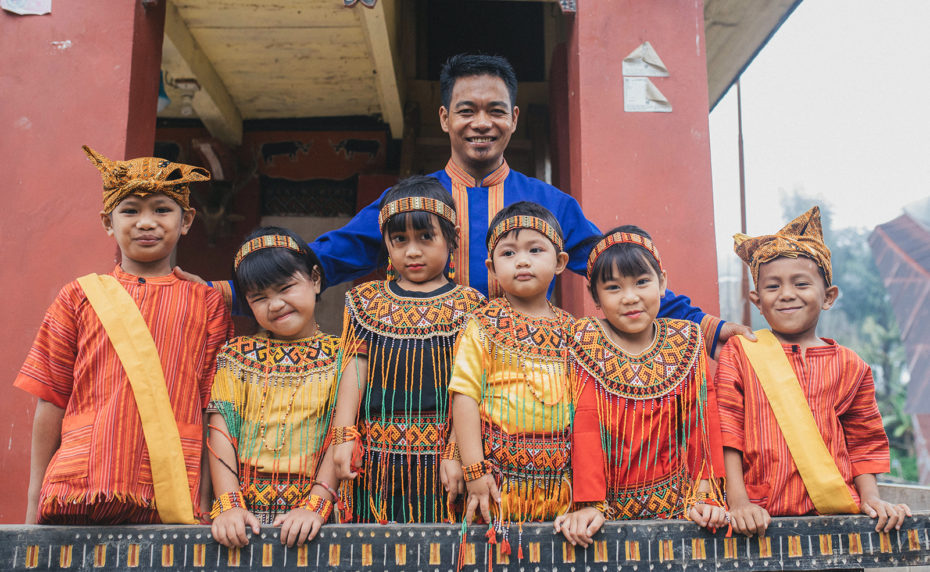
We are constantly in awe of everything our staff members do to help release children from poverty in Jesus’ name. But we also know that some of the most important contributions to our mission come from people who will never be found on a Compassion staff list: the pastors of our frontline church partners.
Be inspired by these stories of pastors and their work on behalf of Compassion around the world.
Continue Reading ›The Radical Runaways: Inside an FGM Rescue Center for Girls
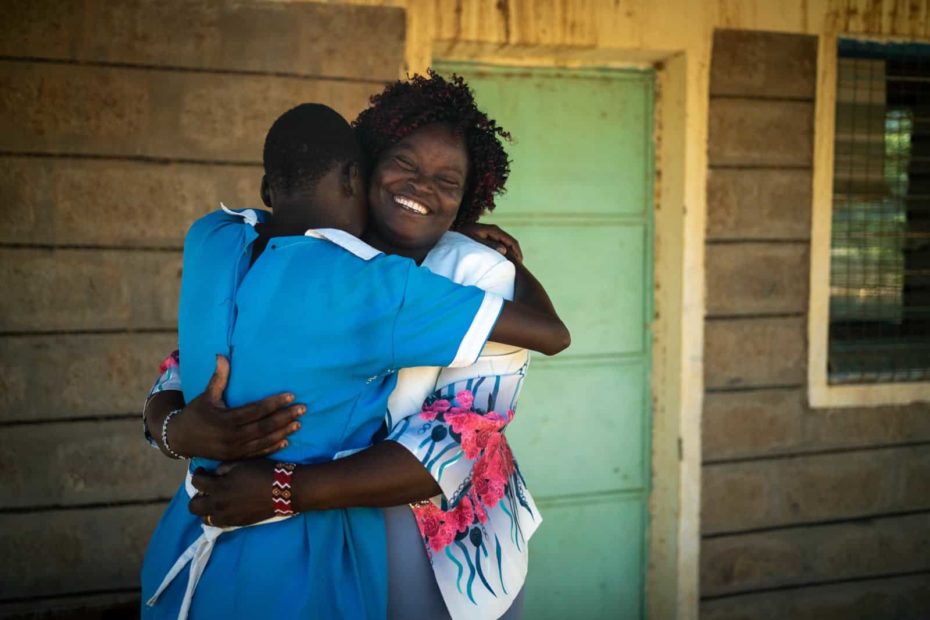
Florence’s rescue center has saved more than 413 girls from female genital mutilation (FGM) and early marriage. The Kenyan schoolteacher’s lifelong crusade against FGM began with her own narrow escape as a child.
Continue Reading ›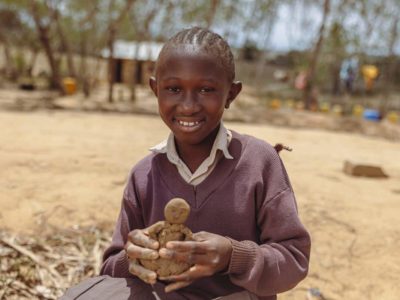
11-Year-Old Neema Shapes Surprises From the Soil
Eleven-year-old Neema walks across the playground carrying a bottle of water. Other children are playing wild and noisy games during break, but there is something else she prefers doing. Neema — image-bearer, hands in dirt — shapes surprises from the soil like her Father God.
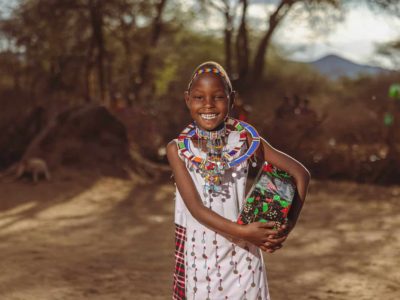
A Very Maasai Christmas
Seven-year-old Pesi is part of the Child Sponsorship Program at a church in Kenya. She is also a member of the Maasai people. Every year since she can remember, her family has celebrated Christmas.
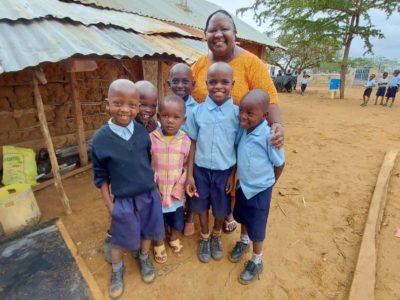
“Giving Thanks Lightened the Burden in My Heart”
When I reached out to our staff across the globe to share messages of gratitude for Compassion’s Prayer Calendar, I didn’t expect to be as touched by their stories as I was.
The letter below is from Susan, who works in our Compassion Kenya office. She shares the impact of shifting from a heart of frustration to a heart of gratitude – and what that does for her spirit.
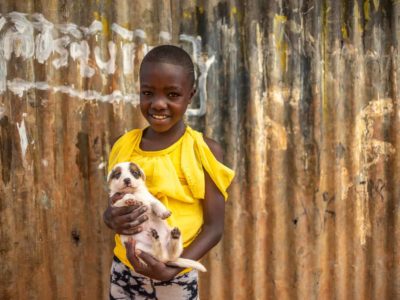
What Is Daily Life Like for Kenya’s Girls?
These girls are like any girls, anywhere. They love to learn and play and have big dreams. However, like more than one-third of Kenyans, they live below the poverty line, and they face confronting challenges. With the support of Compassion’s local church partners, these girls have the care they need to rise above their circumstances with determination and hope.
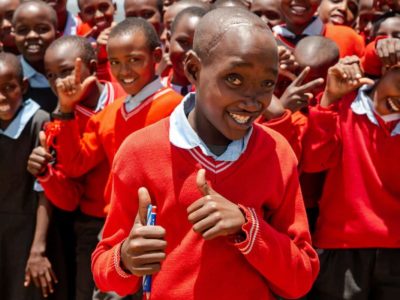
Meshack: Living His Best Life After 6 Surgeries and Many Prayers
Fourteen years ago, Elizabeth had never heard the words “nasal encephalocele.” The Kenyan mother sat in a hospital ward, looking down at her baby. She noticed a small lump under his nose but didn’t worry. Her husband, Tunaiyo, was completing the hospital discharge process to take home their baby boy, Meshack. As the delighted family settled in at home with their new baby, they noticed that the lump under Meshack’s nose kept growing.
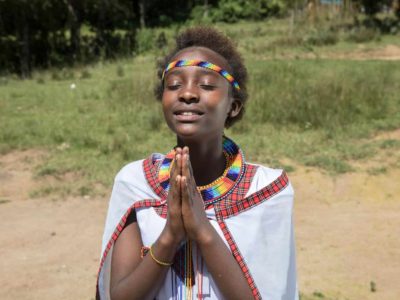
Let’s Make 2021 an Epic Year of Gratitude and Praise
The only way through hard times is … well, through it. You can’t go over, under or around difficult seasons. You simply plow through, one step at a time. Last year was hard. And that didn’t go away because the calendar flipped to 2021. But there is good still in the world.

10 of the Most Unique Christmas Traditions Around the World
Christmas traditions vary from family to family as well as culture to culture. Travel the world with us as we explore unique, quirky and wonderful Christmas traditions across the globe!
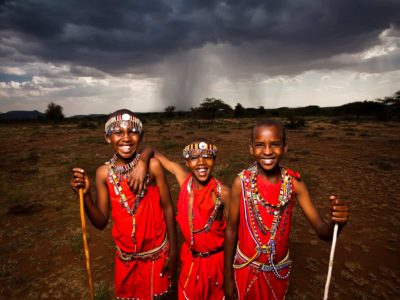
Facts About Kenya: Culturally Vibrant, Beautifully Diverse
Kenya — home to more than 40 different ethnic groups — boasts of both cultural and natural diversity. Today, we’d like to share an array of interesting facts about Kenya that will give you a deeper look into the culture of this beautiful country where over 125,000 Compassion-assisted children live.

Compassion Alumni on the Impact of Sponsorship
There are a lot of opinions about sponsorship — from your pastor encouraging you to sponsor a child, to your co-worker who thinks it’s a scam, to our invitations to sponsor, and everything in between!
But what do those who were sponsored as children think of child sponsorship? We caught up with five alumni of Compassion’s program to get their reflections on the impact of sponsorship.
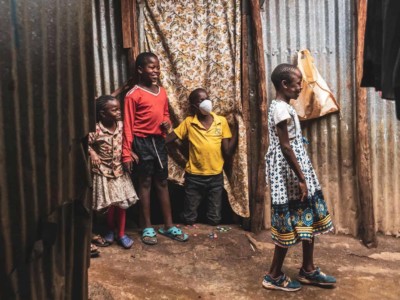
How Can You Socially Distance in a Slum?
Social distancing is a luxury for the world’s most vulnerable, who live hand to mouth in crowded slums. How can they support their families while protecting them from COVID-19?


